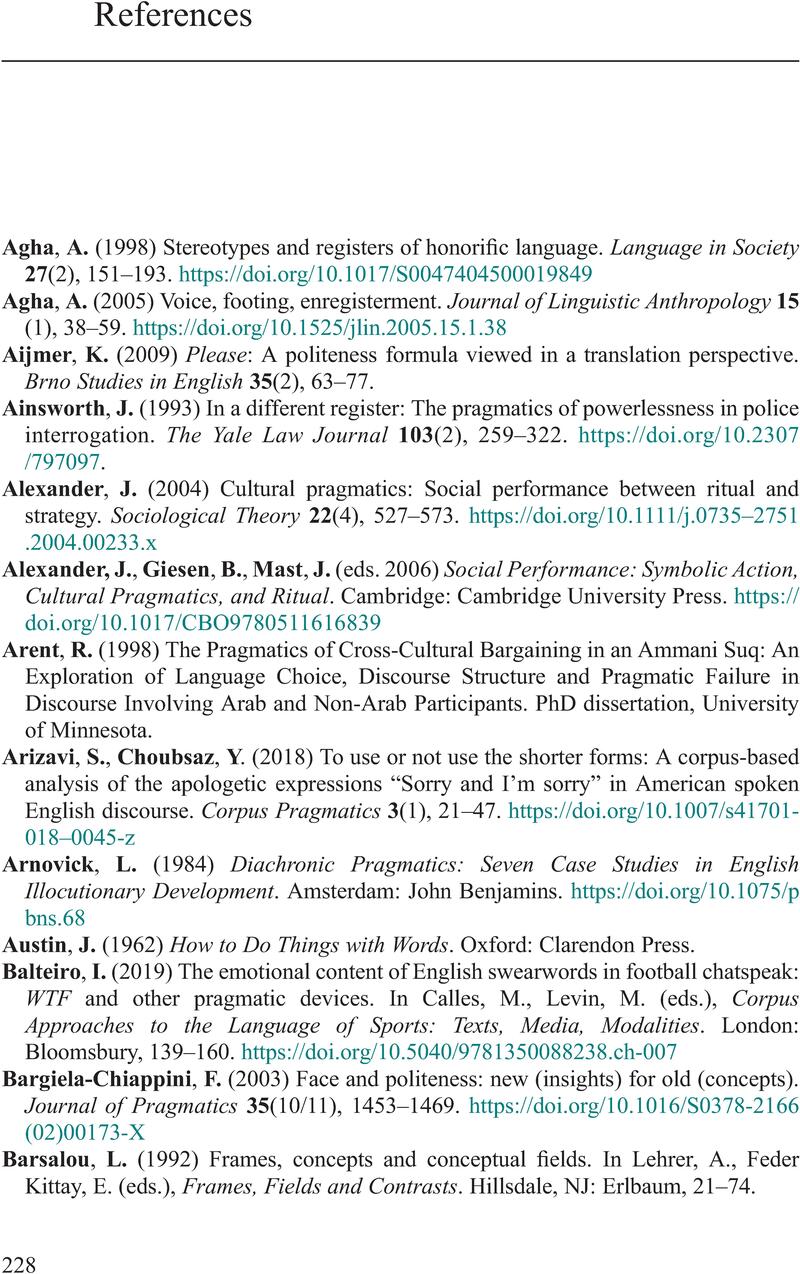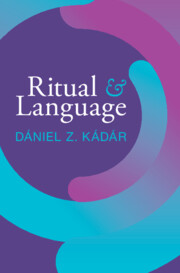Book contents
- Ritual and Language
- Ritual and Language
- Copyright page
- Contents
- Figures
- Tables
- Acknowledgements
- Foreword
- 1 Introduction
- Part I The Language of Ritual: Foundations
- Part II Ritual Frame in Interaction: The Complex Interactional Features of Ritual
- Part III Methodological Issues
- Notes
- References
- Index
- References
References
Published online by Cambridge University Press: 07 March 2024
- Ritual and Language
- Ritual and Language
- Copyright page
- Contents
- Figures
- Tables
- Acknowledgements
- Foreword
- 1 Introduction
- Part I The Language of Ritual: Foundations
- Part II Ritual Frame in Interaction: The Complex Interactional Features of Ritual
- Part III Methodological Issues
- Notes
- References
- Index
- References
Summary

- Type
- Chapter
- Information
- Ritual and Language , pp. 228 - 246Publisher: Cambridge University PressPrint publication year: 2024

